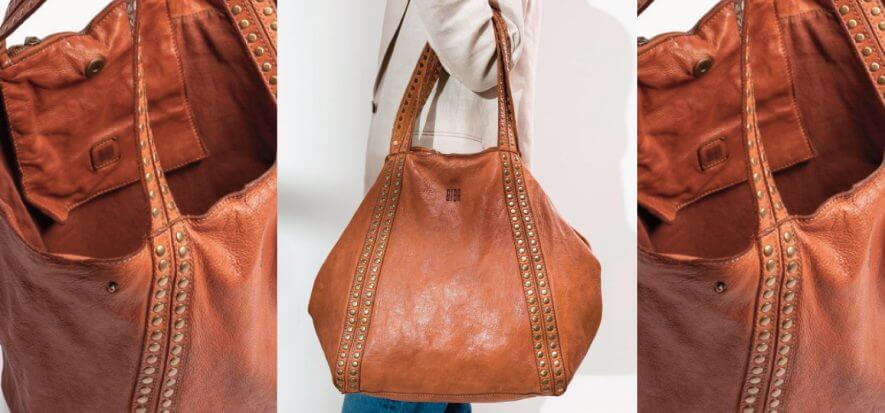Biba‘s transformation: from wholesale distributor for big brands (Nike, Superga, Benetton) to leather goods brand. An “integrated” brand, in the sense of supply chain. In fact, the Spanish brand has started full-scale production in the tannery acquired in 2020 to strengthen production, volumes and control. The aim: to return to a 20 million euros turnover in 2022, putting Covid behind it.
Biba’s transformation
Biba was founded in 1990 as DCM Argentona. Activity: wholesale distributor in Spain of international brands. For example: Levi’s, Benetton, Nike and Superga. In 2007, the company took over one of its suppliers, Slang, and in 2014 became an independent bag brand. “Our intention was to modernise the concept of the classic leather bag,” Antonio Guardia, CEO of Biba, explains to Modaes. Subsequently, the Spanish company acquired a factory in Morocco, where it makes some of its collections. It also makes the others in India and China, while keeping most of its production in Spain. “The next step was then to acquire a tannery,” explains Pol Guardia, one of Biba’s partners.
There was a tannery in Vic
Said and done: Biba bought a tannery in Vic. The deal was completed in early 2020, right before the outbreak of the pandemic, but the tannery has never produced at full capacity until now. The investment amounted to half a million euro. Biba controls 40 directly operated shops in Spain, where it generates 35% of its turnover. For exports, the main market is France. The company expects to recover 2019 sales levels this year, returning to around 20 million euros.
Read also:
- There is a reason why Cartier and Bulgari invest so much in handbags
- Louis Vuitton’s new site in Girona is ready, along with the new contract











